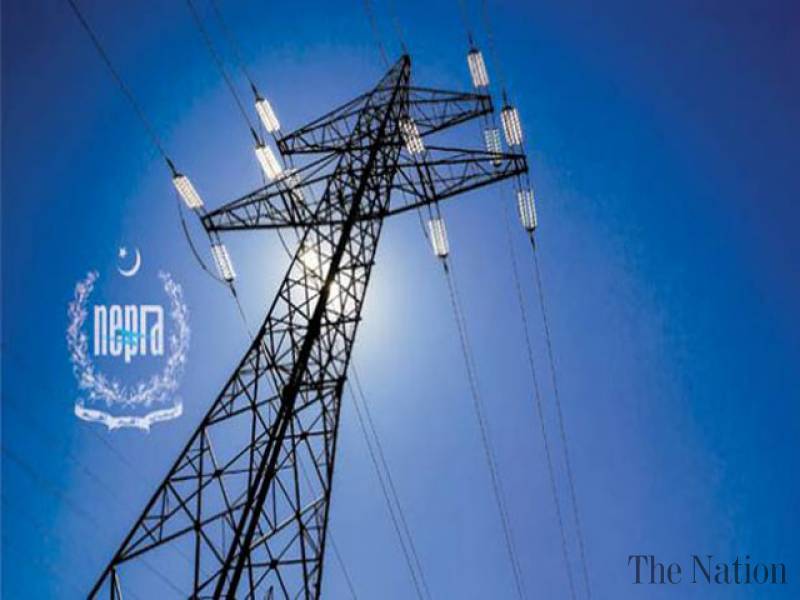ISLAMABAD - The National Electric Power Regulatory Authority (NEPRA) on Thursday approved Rs2.21 per unit reduction in power tariff, for the Ex-Wapda Distribution Companies, for December under monthly fuel adjustment formula.
The Central Power Purchase Agency (CPPA) in its petition had proposed Rs1.85 per unit reduction in fuel based power tariff for December over the reference fuel charges of Rs8.1037 per unit. However, during the public hearing on CPPA petition, for price adjustment, NEPRA decided to reduce power tariffs by Rs2.21 per unit.
This relief will be available to the domestic consumers in entire Pakistan, except in Karachi and the lifeline consumers. The reason for not providing relief to the consumers of the K-Electric is that it is a privatised company and distributing its own generated electricity to the consumers in Karachi and is not covered under this determination. Besides the consumers of K-Electric, the relief will also not be available to the lifeline consumers consuming up to 300 units per month, as they are already being provided subsidised electricity. This compensation will be available to consumers in their February 2017 bills.
Meanwhile, it was informed that Nandipur power plant had been running on only 2 percent capacity of total power generation, while Guddu power plant is also creating problems due to compressor issue. NEPRA expressed serious concerns over the disclosure and directed CPPA to take up the matter with the Ministry of Water and Power.
According to Nepra’s calculation, the fuel cost of electricity delivered to Discos was Rs37 billion at an average cost of Rs6.244 per unit in December against the reference price of Rs8.1037 per unit, which suggests that consumers were entitled to reimbursement of Rs1.8594 per unit. Similarly in its petition CPPA had sought fuel adjustment of Rs4.5 billion for Guddu power plant which was disallowed by the regulator. The authority noted that the demand of Rs 4.5 billion was high and as per their calculation fuel adjustment impact was Rs2.2 billion. As results of Nepra’s decision of rejecting the asking adjustment by the CPPA, the power tariff was reduced by Rs2.21 per unit.
As per the available data, the total generated electricity from all sources during December stood at 7199.66 gigawatt hours (GWh) while the total cost was Rs37 billion. The CPPA supplied 6982.12 GWh to the distribution companies at a cost of Rs43.59 billion and the Discos in turn faced a net loss of 2.95 percent or 212.68 GWh, of total supplied electricity.
In December, Central Power Purchasing Agency (CPPA) reported that almost 37pc power generation was produced through furnace oil based plants at rate of 8.65pc which was highest share in total power generation. The two cheaper domestic sources Hydel and Natural gas together contributed almost 50 percent of energy. The share of power generation through hydel resources dropped to 23 percent due to less water releases from dams following canal closures in December. The second largest power generation of about 27pc was based on domestic natural gas at the rate of Rs5.3/unit. Similarly, power generation from nuclear contributed six percent with a total cost 60 paisa per unit. Re-gasified Liquefied Natural Gas (RLNG) based power generation contributed about 4.1 percent and the cost was Rs7.04 per unit. Diesel based electricity contributed about 0.9 percent power generation with a cost Rs12.04 per unit.
Similarly, while hearing on the petition of K-Electric petition, for increase in power tariff by 40 paisa per unit, NEPRA expressed concerns over the proposed hike. Defending its proposed tariff hike, the representative of K-Electric informed that due to unavailability of gas for power generation, they had to operate plants on furnace oil which has resulted in extra cost per unit.
The authority questioned that why the plants were operated on expensive furnace oil instead of gas. The representative of K-Electric officials said that the SSGCL regulates the supply of gas to the power plants and they are the one to tell the reason. The regulator allowed provisional increase of 40 paisa per unit and formed a committee to probe why it operated plants on furnace oil. The regulator observed that if gas was not provided due to non-payment, then K Electric would be held responsible for producing expensive electricity through furnace oil.
FAWAD YOUSAFZAI






